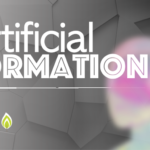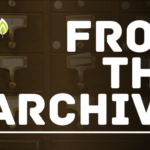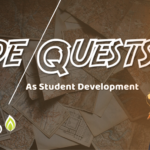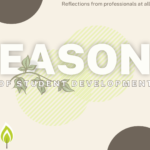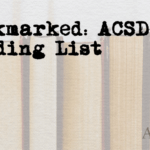EDITORS NOTE: It was such a joy to “see” you all at the virtual conference last week. A big thank you to our LeTourneau colleagues for putting on a great conference!
This summer, the ACSD editorial team is pleased to introduce a new series on the ACSD Ideas blog which we have entitled, “Ideas in Action.” The vision behind this series of posts, which we plan to weave into our regular posting schedule, is to expand the Christian imagination for our work by engaging recent scholarship theologically.
If you are like us, the volume of new scholarship is overwhelming and, amidst the deluge of content and the demands of our work, it can be hard to focus our attention. In this ongoing series of posts, we will focus on two or three recently published articles and offer you three things. First, we will provide a brief overview of the scholars’ argument and how they got there. Second, we will engage their work from a theological perspective, calling out what aligns with scripture and helping us think critically about what doesn’t. Third and finally, we will provide very practical implications including a set of questions you could discuss at your next staff meeting. Our hope is that over time, Ideas in Action would become a library of practical resources for the association that could be referenced for years to come.
Ideas in Action No. 1: Assessing our Assessment
Love it or hate it, assessment needs to be part of our work in student development. To demonstrate how the programs, initiatives, activities, etc. that we facilitate benefit our students and their growth, we need to regularly consider how we are producing evidence toward hopeful outcomes.
If you are thinking to yourself “I don’t really do/care about assessment in my role,” I would argue that demonstrating how our efforts legitimately contribute to student growth is one of the best ways we can hone our craft and improve our skillset around student development. If you are thinking “I don’t really know how to do assessment,” I would encourage you that numerous resources exist out there—some probably on your own campus—to get you started (and a recent Ideas post by Zach Mills is a great read about how the process is not daunting as you might think).
A decade ago, Schuh and Gansemer-Topf (2010) produced a report that challenges those in our field to utilize our knowledge and expertise of the student experience to contribute toward assessing student learning and development at our institutions. Just this past April, Busby and Aaron (2021) offered an updated commentary on student affairs assessment as a revision to Schuh and Gansemer-Topf’s piece. Busby and Aaron offered great context around assessment initiatives, rationale for why assessment is so necessary, and a charge for moving the field of student development forward through assessment efforts. Specifically, their report discusses the advances, contributions, obstacles, and opportunities in student affairs assessment (you can read it here).
From a Christian perspective, I want to expound on their line of thinking in these areas, particularly related to opportunities. As Christians, how can we think about learning outcomes through a distinctly Christian worldview? We often think about seeking God in our work in residence life, campus ministry, conduct, or student activities. But what does it look like to center on our Father within our assessment of these areas? I believe we have a unique opportunity to inform the developmental experience of our students by animating our assessment with Christ. We capitalize on a unique opportunity by seeking God in this work.
Scripture is clear in the directive to seek God in all we do (e.g., Jer 29:13, Acts 17:27, Matt 7:8, Deut 4:29), and yes, this includes our assessment. This process may take some imaginative thinking, but nonetheless we hear time and again in the scriptures how God’s people are instructed to seek him. I want to challenge you to apply this to your own assessment work. This might entail thinking about certain outcomes (e.g., faith development, spiritual practices, etc.) you measure based on students’ participation in certain programs, but it should also inform your approach to assessment. If we make the claim that Christian higher education is somehow distinct from secular or pluralistic higher education, we have to measure what happens in the process in a way that is also distinct. We have to animate our assessment efforts with Christ. So regardless of whether you are looking at faith development in particular, or general outcomes such as sense of community, academic gains, or civic mindedness (for examples), the lens through which we measure change needs to be filtered with our faith in Jesus.
It can be easy to compartmentalize assessment as a necessary production of evidence to prove that the work in your area is effective. Though this is indeed important, such an approach misses an opportunity to more robustly honor God in our student development work. Busby and Aaron (2021) offered a clear articulation of why assessment is so critical to the future of our field. In light of our Christian identity, we have accompanying opportunities to use assessment to further His kingdom.
In sum, whether you are an assessment whiz (perhaps leading an assessment department within your division) or you identify with the two prompts I mentioned earlier (“I don’t care/do” or “I don’t know how”), are your efforts animated by Jesus? Are your assessment plans informed by a distinctly Christian perspective? If not, the opportunity awaits.
Questions to Ponder in Your Next Staff Meeting
- Are current assessment initiatives for our area robust enough based on best practices and recommendations in the field? [Busby and Aaron (2021) might offer helpful context]
- If we have the aim of animating our work with our faith, what does that imply for our assessment efforts?
- As students reflect the Imago Dei, what are the implications for how we attempt to measure their growth?
- Is God present in our assessment plan? If not, how can we creatively seek him?
References
Schuh, J. H., & Gansemer-Topf, A. M. (2010, December). The role of student affairs in student learning assessment. (Occasional Paper No. 7). National Institute for Learning Outcomes Assessment (NILOA).
Busby, A. K., & Aaron, R. W. (2021, April). Advances, contributions, obstacles and opportunities in student affairs assessment. (Occasional Paper No. 53). National Institute for Learning Outcomes Assessment (NILOA).



